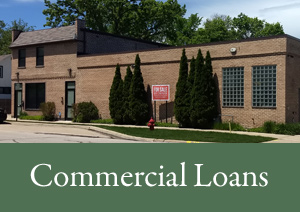Post
What Are the Pros and Cons of Using a Mortgage Broker?

In the labyrinth of home buying, the role of a mortgage broker often emerges as a guiding light for many prospective homeowners. But before diving headfirst into this avenue, it’s crucial to understand both the advantages and disadvantages associated with using a mortgage broker. Let’s embark on a journey to unravel the pros and cons of relying on these financial intermediaries to secure your dream home.
Pros of Using a Mortgage Broker:
Access to a Wide Range of Lenders and Products:
When you enlist the services of a mortgage broker, you gain access to an extensive network of lenders beyond traditional banks. These brokers have relationships with various financial institutions, including banks, credit unions, and private lenders, allowing them to offer a diverse array of mortgage products tailored to your specific needs and preferences. This breadth of options empowers borrowers to explore different avenues and find a mortgage solution that aligns perfectly with their financial goals.
Expertise and Guidance Throughout the Mortgage Process:
Navigating the intricacies of the mortgage process can be daunting, especially for first-time homebuyers. This is where the expertise of a mortgage broker shines through. Brokers possess in-depth knowledge of the mortgage industry, including current market trends, lending criteria, and regulatory requirements. They act as trusted advisors, guiding borrowers through every step of the process, from pre-approval to closing. Whether you have questions about loan options, documentation requirements, or closing costs, a mortgage broker is there to provide clarity and support.
Ability to Negotiate Better Terms and Rates:
One of the primary benefits of using a mortgage broker is their ability to negotiate favorable terms and rates on behalf of their clients. Unlike individual borrowers who may lack bargaining power, brokers leverage their relationships with lenders to secure competitive offers. They have a keen understanding of lenders’ preferences and can present your loan application in the best possible light to maximize your chances of approval. This negotiation prowess often translates into lower interest rates, reduced fees, and overall cost savings for borrowers.
Convenience and Time Savings for Borrowers:
In today’s fast-paced world, convenience is king. Mortgage brokers offer a streamlined and hassle-free alternative to the traditional lending process. Instead of juggling multiple appointments with different lenders, borrowers can work with a single broker who handles all the legwork on their behalf. From gathering documentation to submitting loan applications and coordinating with lenders, brokers take care of the heavy lifting, saving borrowers valuable time and energy. This convenience factor is especially beneficial for busy individuals or those navigating the home buying process from a distance.
Cons of Using a Mortgage Broker:
Potential for Higher Fees and Costs:
While the services of a mortgage broker can offer significant benefits, they often come at a cost. Brokers typically charge a commission or origination fee for their services, which is usually a percentage of the loan amount. While this fee structure may seem reasonable, it can add up to substantial upfront costs for borrowers, especially on larger loan amounts. Additionally, some brokers may receive incentives or bonuses from lenders for steering borrowers toward certain products, raising questions about potential conflicts of interest.
Lack of Direct Control Over the Lending Process:
When you choose to work with a mortgage broker, you relinquish some degree of control over the lending process. Unlike applying for a mortgage directly with a bank, where you interact directly with the lender, using a broker means entrusting a third party to represent your interests. While brokers strive to act in their clients’ best interests, there’s always a risk of miscommunication or misunderstanding between the borrower, broker, and lender. This lack of direct control can lead to frustration or delays during the mortgage approval process.
Potential for Biased Recommendations:
While mortgage brokers are bound by ethical standards and fiduciary duties to their clients, there’s always the potential for biased recommendations. Brokers may receive incentives or commissions from lenders for promoting certain products or steering borrowers in a particular direction. While these incentives are disclosed to borrowers, they can still influence the broker’s recommendations and advice. As a result, borrowers should approach broker recommendations with a healthy dose of skepticism and conduct their own research to ensure they’re getting the best possible deal.
Limited Ability to Offer In-House Mortgage Products:
Unlike banks or credit unions that may offer in-house mortgage products or special programs, mortgage brokers typically rely on external lenders for financing. While this allows brokers to offer a broader range of options, it may also limit their ability to provide specialized or niche products tailored to specific borrower profiles. For example, if you’re seeking a specialized loan program for first-time homebuyers or veterans, you may need to explore alternative options beyond what a mortgage broker can offer.
Factors to Consider When Deciding Whether to Use a Mortgage Broker:
When deciding whether to use a mortgage broker, several factors come into play.
Individual Financial Situation and Needs: Consider your financial goals, creditworthiness, and budgetary constraints when evaluating mortgage options.
Level of Comfort with the Mortgage Process: Assess your comfort level with navigating the mortgage process independently versus relying on a broker for guidance and support.
Availability of Alternative Lending Options: Research alternative lending options, including banks, credit unions, and online lenders, to ensure you’re exploring all available avenues.
Reputation and Trustworthiness of the Broker: Research the reputation and credentials of potential brokers, including online reviews, referrals, and industry certifications, to ensure you’re working with a reputable and trustworthy professional.
Tips for Maximizing the Benefits of Using a Mortgage Broker:
To maximize the benefits of using a mortgage broker, consider the following tips:
Research and Compare Broker Options Thoroughly: Take the time to research and compare multiple brokers to find one that aligns with your needs and preferences.
Ask Questions and Clarify Any Doubts or Concerns: Don’t hesitate to ask your broker questions or seek clarification on any aspect of the mortgage process to ensure you’re fully informed.
Negotiate Fees and Terms Where Possible: Be proactive in negotiating broker fees and loan terms to ensure you’re getting the best possible deal for your financial situation.
Stay Informed and Involved Throughout the Mortgage Process: Stay engaged throughout the mortgage process and keep track of key milestones and deadlines to ensure a smooth and successful outcome.
Conclusion
In conclusion, the decision to use a mortgage broker involves weighing the pros and cons based on your individual circumstances and preferences. While brokers offer access to a wide range of lenders and products, along with expertise and guidance throughout the mortgage process, they also come with potential drawbacks, including higher fees and limited control over the lending process. By carefully considering the factors discussed in this article and following the tips provided, you can make an informed decision that aligns with your homeownership goals. At 1st Eagle Mortgage, we’re committed to helping you navigate the complexities of securing a mortgage with integrity and professionalism. Contact us today to learn more about our mortgage options and how we can assist you on your journey to homeownership.
March 28th, 2024 by Herb Levin
No comments yet




